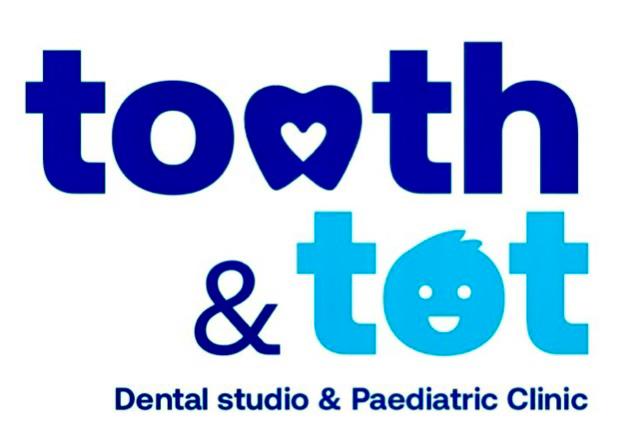+918042781795

This is your website preview.
Currently it only shows your basic business info. Start adding relevant business details such as description, images and products or services to gain your customers attention by using Boost 360 android app / iOS App / web portal.
Description
Newborn vaccinations are a crucial part of protecting your baby from a variety of potentially serious diseases. Vaccination schedules vary by country, but there are general guidelines that many nations follow, with recommendations from organizations like the World Health Organization (WHO) and the Centers for Disease Control and Prevention (CDC). Here’s an overview of typical newborn vaccinations: Vaccinations for Newborns: Hepatitis B (HBV) Vaccine: When: The first dose is typically given at birth, ideally within 24 hours of birth. Why: Hepatitis B is a serious liver infection that can be transmitted from mother to baby during childbirth. The vaccine helps protect against this infection, which can cause long-term liver damage, cirrhosis, and liver cancer. BCG (Bacillus Calmette-Guérin) Vaccine: When: This vaccine is usually administered shortly after birth in some countries, especially in areas where tuberculosis (TB) is common. Why: The BCG vaccine helps protect against tuberculosis, a bacterial infection that can be serious, especially in young children. It is not given in countries with low TB rates. Polio Vaccine (Inactivated Polio Vaccine - IPV): When: In many countries, the polio vaccine is given at birth or in the first few months as part of a combination vaccine. Why: Polio is a highly contagious viral infection that can lead to paralysis or even death. The IPV helps prevent polio by providing immunity against the virus. Diphtheria, Tetanus, and Pertussis (DTaP) Vaccine: When: While the first dose is usually given at 2 months of age, the DTaP vaccine may be recommended in combination with other vaccines for newborns in some countries. Why: These vaccines protect against: Diphtheria: A serious bacterial infection that can cause severe breathing problems, heart failure, or even death. Tetanus: Caused by a bacterial toxin, tetanus leads to muscle stiffness and can be life-threatening. Pertussis (whooping cough): A highly contagious respiratory disease that can cause severe coughing spells, especially dangerous for infants. Hepatitis B Vaccine (2nd Dose): When: The second dose is typically given at 1-2 months of age, depending on the country’s vaccination schedule. Why: The second dose is important for completing the protection against Hepatitis B infection. Vaccination Schedule (Typical): In addition to the newborn vaccines, the general vaccination schedule for infants typically continues throughout the first year of life. Here’s a rough guide: At Birth: Hepatitis B (1st dose) BCG (in some countries) Polio (depending on country guidelines) At 2 Months: DTaP (Diphtheria, Tetanus, Pertussis) IPV (Inactivated Polio Vaccine) Hib (Haemophilus influenzae type b) PCV13 (Pneumococcal conjugate vaccine) Rotavirus vaccine (oral vaccine) Hepatitis B (2nd dose) At 4 Months: DTaP (Diphtheria, Tetanus, Pertussis) IPV (Inactivated Polio Vaccine) Hib (Haemophilus influenzae type b) PCV13 (Pneumococcal conjugate vaccine) Rotavirus vaccine (oral vaccine) At 6 Months: DTaP (Diphtheria, Tetanus, Pertussis) IPV (Inactivated Polio Vaccine) Hib (Haemophilus influenzae type b) PCV13 (Pneumococcal conjugate vaccine) Hepatitis B (3rd dose) Rotavirus vaccine (if needed) Why Vaccination is Important for Newborns: Protection Against Serious Diseases: Vaccines help protect newborns from diseases that could lead to hospitalization, long-term health problems, or even death. For instance, pertussis (whooping cough) can be particularly dangerous for babies, while rotavirus can cause severe diarrhea and dehydration. Herd Immunity: When most people in a community are vaccinated, it reduces the spread of diseases, helping protect those who are too young or medically unable to receive vaccines. Early Immunity: Babies are born with some immunity from their mother (via placenta or breast milk), but this immunity decreases over time. Vaccines help boost the baby’s immune system to continue fighting off infections. Cost-Effective: Vaccination is one of the most cost-effective public health measures. It prevents the healthcare system from being overwhelmed by preventable diseases, saving lives and reducing healthcare costs. Common Concerns and Questions: Are Vaccines Safe for Newborns? Yes, vaccines are generally safe and are rigorously tested before being approved. Side effects are usually mild and temporary, such as a slight fever or redness at the injection site. Serious side effects are extremely rare. Can Vaccines Overwhelm the Baby’s Immune System? No, babies are exposed to many germs every day, and their immune system is fully capable of handling multiple vaccines at once. The number of vaccines given is small compared to the number of pathogens a baby’s immune system can combat on a daily basis. What if My Baby Misses a Vaccine Dose? If your baby misses a dose of a vaccine, it's important to catch up as soon as possible. Your pediatrician can help you schedule the appropriate catch-up vaccinations. Should I Vaccinate My Baby if They Are Sick? If your baby has a mild illness like a cold or low-grade fever, vaccines can usually still be given. However, if your baby has a fever or a serious illness, it’s best to delay vaccinations until they are healthy. Always consult your pediatrician. In Conclusion: Vaccinating newborns is one of the most effective ways to protect them from serious and sometimes life-threatening diseases. Following the recommended vaccination schedule is important for the health and safety of your baby and helps protect the wider community as well. If you have any concerns or specific questions about vaccines, it’s a good idea to consult your pediatrician or healthcare provider. They can guide you based on your baby's health needs and local vaccination guidelines.

